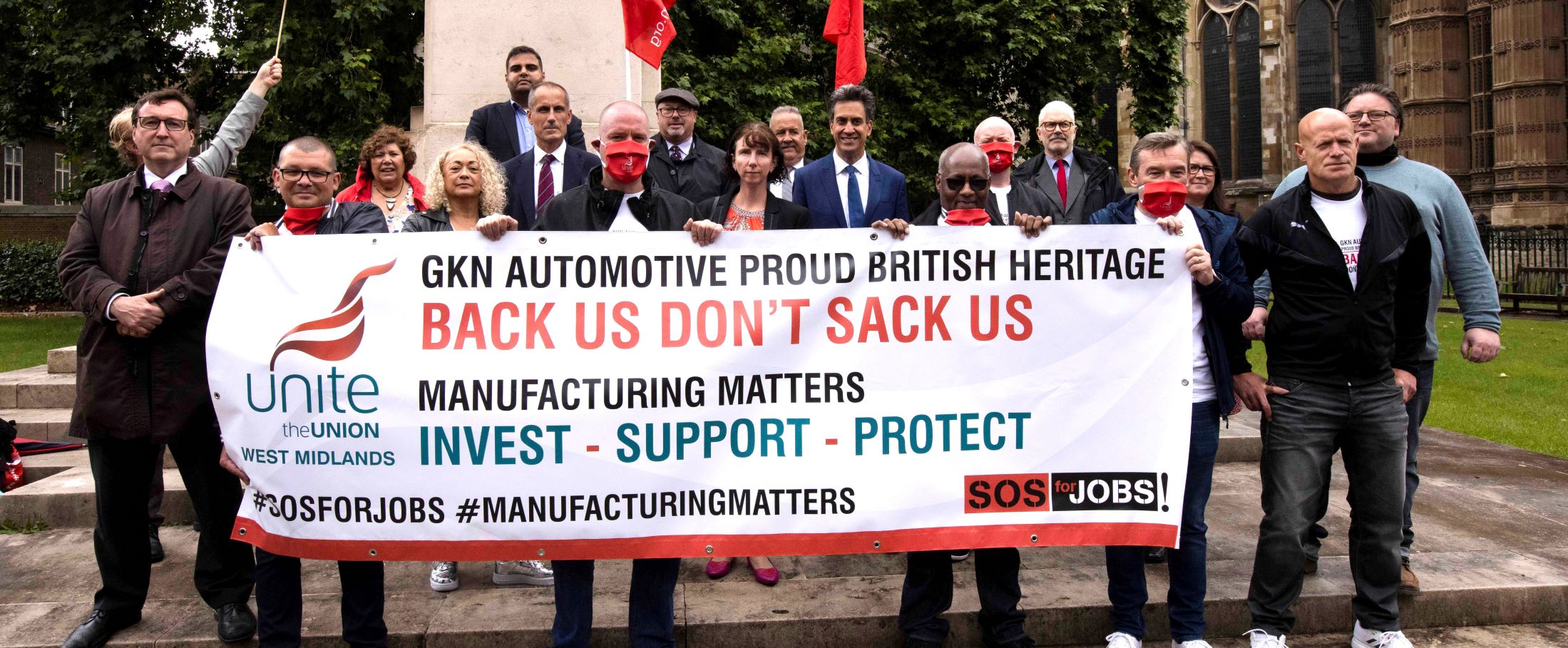‘Casino style’ takeovers threat
The UK is lagging behind other advanced economies with measures to protect against â€casino style’ hostile takeovers, according to a report for Unite, which calls for a strengthening of UK takeover laws to promote long-term economic stability ahead of short-term interests that destroy British jobs and investment.
The report, Reform of the UK’s regulations on mergers, takeovers and shareholders for the longer term, comes in the wake of Unilever’s decision to move its headquarters to Rotterdam and calls from across the political spectrum for the UK government to block Melrose’s hostile takeover bid for GKN.
Assessing takeover laws in other countries, the report’s authors, Acuity Analysis, find that UK firms are particularly susceptible to unwanted hostile takeover bids compared to firms in the Netherlands, France and other European countries because of the low use of protection mechanisms currently available to British companies.
Short-termism
As a result short-term interests of shareholders trump long-term investment and wider stakeholder interests, including those of the workforce and local communities, as well as the national interest.
The increase in cash given to shareholders of UK-listed firms was almost double the increase of investment made by UK firms over the last seven years. Between 2010 and 2017, the amount paid out through dividends increased by 74.5 per cent from ÂŁ54.1 billion to ÂŁ94.4 billion, while investment by UK firms increased by 42.5 per cent from ÂŁ133 billion to nearly ÂŁ189 billion.
Criticising the short-termism of the City, Unite general secretary Len McCluskey said,“We have worked with Acuity to produce this report because eight years after one great British name, Cadbury, was lost to the country another manufacturing stalwart, GKN, is at risk from a predatory takeover.
“Our takeover law is simply inadequate when it comes to protecting British companies. What happens in this country would not be allowed to happen in France, Holland or Germany, but our government refuses to give our jobs and businesses the same protection.
“Instead, shareholders’ interests reign supreme in UK takeover situations regardless of whether it’s in the national interest or the long-term interests of a company, its workers, customers and suppliers.
“As we have seen recently with Unilever moving its headquarters to Rotterdam, business will vote with its feet because Theresa May’s government sits on its hands.
“City speculators looking to turn a quick buck know that the UK is open to their â€casino style’ capitalism. This is wrong: finance should be the servant of the economy, not the other way around.”
Options
The report proposes a series of options to strengthen the voice of workers and longer term interests. This includes making firms opt out of rewarding long-term investors with additional voting rights as an anti-hostile takeover measure and way to reduce investment short-termism.
With growing criticism over the government’s toothless response to hostile takeovers, the report also draws on the controversial Cadbury takeover by Kraft eight years ago. In addition to banning board members of target companies from cashing in on takeovers, the report recommends that share transactions should be frozen during takeovers to stop short-term speculators determining the outcome of a bid to make a quick profit.
In the case of Cadbury, shares held by short-term investors such as hedge funds stood at around five per cent at the point Kraft made its opening bid. Just 44 days later these shareholders had acquired nearly a third of the company’s stock.
Len McCluskey continued, “UK companies already have the flexibility to introduce protective measures, such as rewarding long-term investors with additional rights to guard against hostile takeovers driven by short-term profit.
“That firms choose not to do so points to vested interests and the desire of board members in too many instances to cash-in when the opportunity arises, even when it puts the preservation of jobs and the retention of key British businesses at risk.
“Time is running out for GKN. Melrose’s bid is destabilising a giant of UK engineering and it is bewildering, frustrating and irresponsible that the government will not use the powers it has to block the bid. ”
The full report can be viewed here.
 Like
Like Follow
Follow

